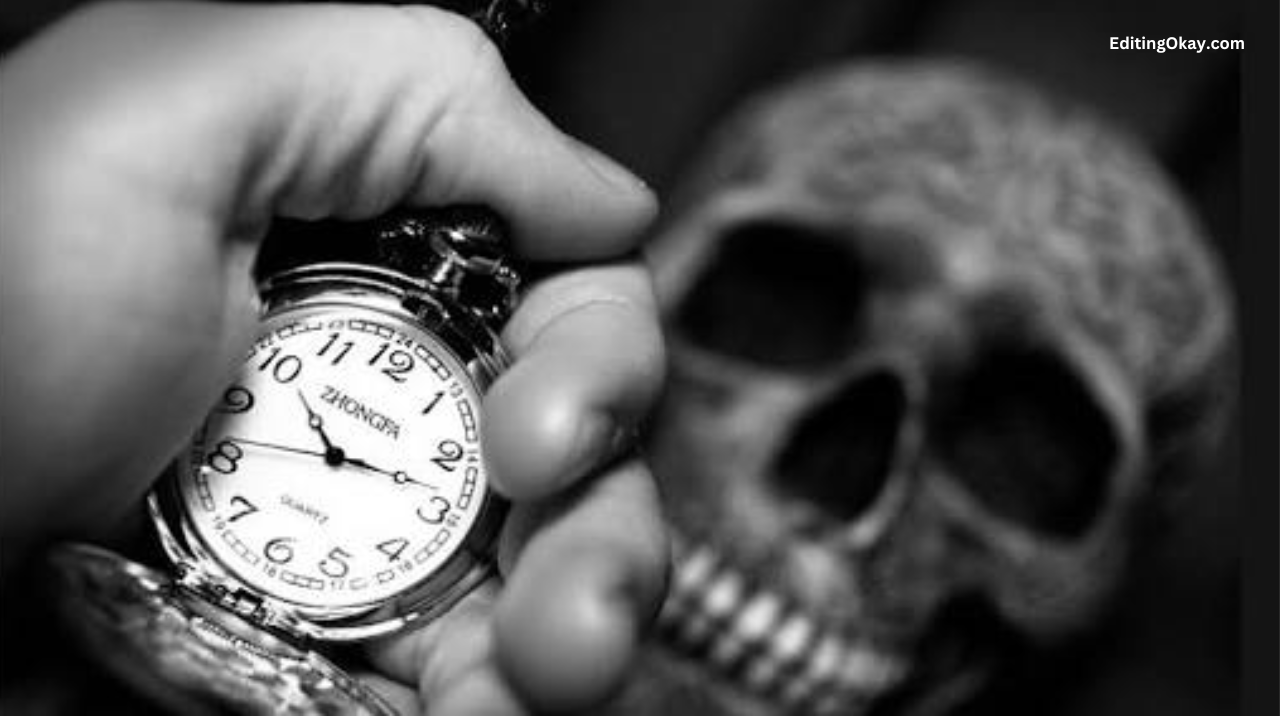Death Clock: A Reflection on Mortality and the Passage of Time

The concept of a “death clock” has intrigued and unsettled people for years. It’s not just about a countdown to the inevitable but also a reflection on life’s fleeting nature. With technology, there are now literal “death clocks”—websites and apps designed to predict your final day on Earth based on health data and lifestyle habits. But beyond the morbid curiosity, the death clock idea holds a deeper meaning, raising questions about mortality, how we spend our time, and what we value most.
The Origins of the Death Clock
The term “death clock” may conjure images of a ticking timer counting down the minutes until the end of a person’s life, but the idea has its roots in ancient philosophies and cultural practices. Throughout history, societies have had different ways of marking time and thinking about death. From ancient Egyptians’ obsession with the afterlife to Buddhist meditation on impermanence, the idea that life is finite has always been a focus of human thought.
In the modern world, the death clock took a more literal turn with the advent of websites and apps. These digital tools invite users to input information like age, weight, smoking habits, and medical history to calculate an estimated “death date.” While these tools are mostly seen as novelties, they often provoke a sense of existential reflection, forcing users to contemplate their mortality.
Death Clock in Popular Culture
Pop culture has always been fascinated with death and the idea of knowing when your time will be up. Movies like Final Destination explored the concept of fate and the inevitability of death, while TV shows like The Twilight Zone toyed with the idea of foreseeing one’s demise.
In a broader sense, the concept of the death clock can be connected to popular dystopian themes. In sci-fi universes like The Matrix or In Time, characters reside in worlds where life expectancy is precisely calculated, and the remaining time becomes a form of currency or power. These fictional representations are powerful because they magnify the anxiety and curiosity humans have about their limited time.
Why Are We So Obsessed with Knowing Our Death Date?
At its core, the death clock taps into one of humanity’s oldest fears: the fear of the unknown, especially regarding our mortality. The idea of knowing the exact date of our death offers both a sense of control and dread. On the one hand, it could allow people to plan, to tie up loose ends, and live with a heightened sense of purpose. On the other hand, it could lead to a life filled with anxiety, where every day becomes a countdown.
For many, the death clock represents an opportunity to reflect on how they’re living their lives. If you knew exactly how much time you had left, would you make different choices? Would you spend more time with loved ones, focus on your passions, or let go of grudges? The inevitability of death forces us to think about how we use our time, and the death clock serves as a reminder to make each moment count.
The Psychological Impact of the Death Clock
The psychological impact of contemplating death has been widely studied. In psychology, “mortality salience” refers to the awareness of one’s death, and studies have shown that this awareness can significantly affect behavior. When people are reminded of their mortality, they often seek meaning in their lives, focusing on relationships, personal growth, and legacy.
However, the death clock can also create a sense of existential anxiety. For some, the constant reminder of their mortality can lead to feelings of dread or helplessness. The idea that time is slipping away, and there’s nothing we can do about it, can be overwhelming.
Yet, this discomfort can also be transformative. For many, the awareness of death acts as a catalyst for change, prompting them to live more authentically and purposefully. It’s this paradox—both the fear of death and the motivation to live fully—that makes the death clock concept so compelling.
Embracing Mortality to Enhance Life
The clock doesn’t just represent the end—it represents the limited, precious time we have. By embracing mortality, people can focus on what matters: relationships, experiences, and personal fulfillment.
Many philosophies and religions teach that life becomes richer when viewed through the lens of mortality. For example, the Stoics believed in “memento mori,” or the practice of reflecting on death to foster gratitude and perspective.
The death clock, while perhaps gimmicky in its digital form, embodies this age-old wisdom. It encourages us to think about time as our most valuable resource.
How Should We Use Our Time?
The biggest takeaway from the death clock isn’t about predicting when you’ll die but understanding how to live. The clock is a metaphor for the limited time we all have, and it’s a reminder that every moment is a choice.
So, how should we spend our time? There’s no one-size-fits-all answer, but the death clock encourages us to reflect. For some, it might mean focusing on relationships—making time for family, friends, and meaningful connections. For others, it could mean dedicating themselves to a cause, passion, or creative pursuit. What matters is that we live consciously, aware of the time we have and the choices we make.



